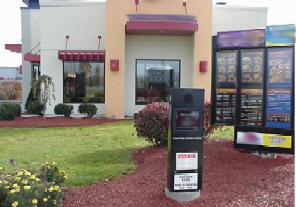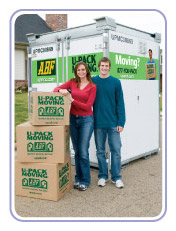 I’ve spent most of past year working full time for a private equity and asset management firm. I thought I knew a lot about the private investment world before I started (I’ve been part of several business that received venture capital funding), but what I learned has been a tremendous eye-opener, particularly in seeing the naivity of investors.
I’ve spent most of past year working full time for a private equity and asset management firm. I thought I knew a lot about the private investment world before I started (I’ve been part of several business that received venture capital funding), but what I learned has been a tremendous eye-opener, particularly in seeing the naivity of investors.
My job involves handling and fixing issues (legal, financial, complaints, compliance, etc) that involve hundreds of investors. I often speak to investors when they have concerns or complaints.
I have a lot to say on this topic because I slap my head almost daily at the mistakes, misconceptions, and wholly amateur approach investors make when deciding whether to invest in my company’s real estate related investments and funds. This will be a multi-part series of postings that will be equally relevant to those looking at investing in private placement offerings and those looking to be a franchisee. The no-bologne, no excuse due diligence an investor in a private partnership should go through before locking themselves into an investment is nearly the same a potential franchisee should go through before locking themselves into a franchise.
Venture capitalist often repeat that they do not invest in “ideas”, but rather they invest in the “people”. I always hear that them say they’d much rather have a “C” idea ran by an “A” team, than an “A” idea ran by a “C” team. Focusing on the “people”, the franchisors or general partners, is indeed key from what I’ve seen. How well do you really know the people and managers you’ll be investing with? Have you done a background check on the managers? Have you asked for audited financials this deal and other deals? If they aren’t audited by a reputable firm, walk away…don’t believe the “we didn’t feel it was worth the money” crap excuse. Have you asked for the underwriting documents? If the deal is a preferred return structure and the general partner has built in equity to pay you the full preferred return for a certain period of time, do you know what that time frame is? Are they going to borrow money to pay your distributions? If you don’t know what I’m talking about, you are a fool to invest in a private offering deal no matter what they promise or claim is their past success.
Many complaints stem from misaligned expectations. In my view, the overly positive expectations of investors are their own fault for not doing enough investigation and due diligence. I once watched Jim Cramer from CNBC’s Mad Money show say, “I’d never invest in non-regulated securities (private offerings) because I want the protection.” Cramer formerly offered private offerings through his hedge fund too, so it’s a lot for him to admit that.
What people (potential investors or franchisees) seem to loose is their skeptical prudent eye when they feel comfortable with the salemen. You do know that your salesman is being paid a commission based on he get you to invest, right? You know some firms pay 10% or more to their brokers, don’t you? Do you know where that 10% commission is paid from exactly…it will comes out of your investment even if it is not represented in your capital account as such, so the partnership has to recover your commission to get you back to whole. The salesmen usually only knows enough details about the project to talk about it superficially, so his virtual “guarantees” are baseless beyond his own impressions. Get to know these facts and be comfortable with their implications, please. And for crying out loud read the darn PPM (private placement memorandum) and operating agreement (LP or LLC agreement), and have your lawyer review it with you in detail.Â
Often in the world of private offerings, you meet the salesmen (broker or finder) from your religious organization, through mutual friends, clubs or other referal. Does that mean you should take their word without your own “real” research? Of course not.
Private placement offerings are (supposed to be only) offered through registered NASD broker/dealers, and these registered representatives are a very regulated group with stiff penalties for saying or promising too much. If the person hasn’t taken the NASD tests to be certified (usually a Series 7, Series 63, or Series 82) and a member of an NASD firm. However, firms often bypass the registered rep requirement by paying a “finder’s fee” to the person who made the introduction of the investor.
I will write later about what “real” due diligence and research consists of for the investor/franchisee. Out of the hundreds of investors I’ve seen at my company, in my opinion not one individual person has done enough due diligence before writing that big (sometimes multi-million dollar) check.
 Franchise Pundit franchise opinion and research
Franchise Pundit franchise opinion and research
 I’ve spent most of past year working full time for a private equity and asset management firm. I thought I knew a lot about the private investment world before I started (I’ve been part of several business that received venture capital funding), but what I learned has been a tremendous eye-opener, particularly in seeing the naivity of investors.
I’ve spent most of past year working full time for a private equity and asset management firm. I thought I knew a lot about the private investment world before I started (I’ve been part of several business that received venture capital funding), but what I learned has been a tremendous eye-opener, particularly in seeing the naivity of investors. Here is a laser skin care franchise
Here is a laser skin care franchise I’m embarassed to admit that I’m a fan of drive-thrus, and I’ve perfected eating while driving with my knees since I drove to high school. When you think of drive-thru, however, you normally don’t think of healthy meals, unless you want to go low-carb and just slop down the burger meat.
I’m embarassed to admit that I’m a fan of drive-thrus, and I’ve perfected eating while driving with my knees since I drove to high school. When you think of drive-thru, however, you normally don’t think of healthy meals, unless you want to go low-carb and just slop down the burger meat.

 The past decade has seen substantial innovation and entrepreneurship in the moving industry.
The past decade has seen substantial innovation and entrepreneurship in the moving industry. Crain’s in Chicago published
Crain’s in Chicago published  This British franchisor developed a vending style
This British franchisor developed a vending style  A franchisee
A franchisee  for those interested in Quiznos….
for those interested in Quiznos….
 Many franchises that require frequent travel or rely on a gas-intensive system (delivery drivers, UPS Store, etc.) may want to consider the impact higher commodity prices
Many franchises that require frequent travel or rely on a gas-intensive system (delivery drivers, UPS Store, etc.) may want to consider the impact higher commodity prices